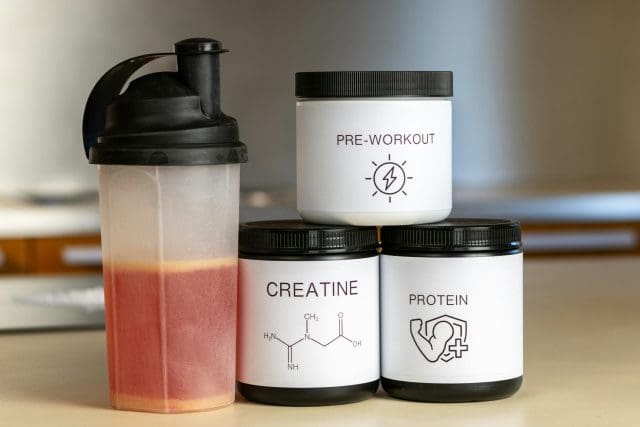
Pre-workout supplements are a popular choice for those looking to boost their energy and performance during workouts. They are designed to help you push through intense exercise sessions by increasing focus, energy, endurance, and strength. But with their growing popularity, a common question arises: should you be using pre-workout every day? While pre-workout can be an effective tool to enhance workouts, it’s important to understand whether daily use is beneficial or harmful in the long run.
In this article, we’ll explore the pros and cons of using pre-workout daily, helping you determine if it’s the right choice for you based on your fitness goals, workout routine, and overall health.
The Benefits of Using Pre-Workout Daily
When used properly, pre-workout supplements can offer several advantages, particularly for those who engage in regular, high-intensity training. Here’s a look at some of the benefits:
1. Enhanced Performance
One of the biggest benefits of taking pre-workout is the potential for improved performance. Many pre-workouts contain ingredients like caffeine, creatine, and beta-alanine, all of which are known to boost energy, focus, and endurance. For someone training regularly, using pre-workout can help increase the intensity of your workouts and improve your results.
If you’re aiming to push past plateaus or challenge yourself with heavier weights or longer cardio sessions, the added energy from pre-workout can make a noticeable difference in how you perform.
2. Increased Motivation and Focus
Pre-workouts often contain stimulants like caffeine, which can help enhance mental focus and motivation. If you find it difficult to stay engaged during your workouts or struggle to get started, the right pre-workout can provide that extra mental boost to keep you sharp and energized. For those who have early morning or after-work workouts, this added energy can be a game-changer.
3. Better Muscle Pump and Recovery
Ingredients such as nitric oxide boosters and creatine in pre-workout supplements are designed to increase blood flow to your muscles, giving you that coveted “muscle pump” during resistance training. This increased blood flow helps deliver more oxygen and nutrients to your muscles, improving overall endurance and reducing fatigue. Additionally, creatine aids in muscle recovery, so you can bounce back quicker between workouts.
4. Improved Endurance
If your workout routine involves long cardio sessions or heavy lifting, pre-workout supplements can help improve endurance. Many pre-workouts are formulated with ingredients that support energy production, which can help you sustain longer, more intense sessions without feeling as fatigued.
The Drawbacks of Using Pre-Workout Every Day
While pre-workout supplements have many benefits, using them daily isn’t always the best option. Overuse or improper usage can lead to unwanted side effects. Here are some potential downsides to consider:
1. Building a Tolerance
Pre-workout supplements typically contain caffeine or other stimulants that can help boost energy and focus. However, if you use pre-workout every day, your body may build a tolerance to the stimulants. As tolerance increases, you may find that you need to take higher doses of pre-workout to achieve the same effects, which could lead to overconsumption and potential side effects like jitteriness, anxiety, or insomnia.
To avoid tolerance buildup, it’s a good idea to cycle your pre-workout use, taking breaks or using it only on days when you need an extra boost. This helps keep your body responsive to the ingredients and avoids overstimulation.
2. Dependence on Stimulants
If you rely on pre-workout every day, you might become dependent on the stimulants it contains, especially caffeine. This can lead to feelings of lethargy or low energy when you don’t take pre-workout, making it difficult to work out without it. Over time, this dependency can affect your natural energy levels and make it harder to stay motivated without relying on supplements.
The key is balance. If you use pre-workout regularly, make sure to have days where you train without it to help maintain your body’s natural energy levels.
3. Digestive Issues
Some people may experience digestive discomfort from certain pre-workout ingredients, especially if consumed frequently. Ingredients like creatine and caffeine can cause bloating, stomach cramps, or diarrhea when taken in excess. If you’re using pre-workout daily, you might start to notice these digestive issues becoming more frequent.
If you experience any digestive discomfort, consider using pre-workout on a more occasional basis and paying attention to how your body responds. Alternatively, you could look for pre-workout formulations that are gentle on the stomach or free from irritants.
4. Potential for Overstimulation
Many pre-workouts contain high doses of caffeine and other stimulants. If used every day, especially with other sources of caffeine like coffee, energy drinks, or sodas, you could be overstimulating your system. This can lead to negative side effects such as increased heart rate, high blood pressure, anxiety, and trouble sleeping.
To avoid overstimulation, be mindful of your total caffeine intake and consider switching to stimulant-free pre-workout formulas if you find yourself feeling jittery or experiencing trouble sleeping.
How to Use Pre-Workout Effectively
If you decide to incorporate pre-workout into your fitness routine, it’s essential to use it effectively. Here are some tips to maximize its benefits without overdoing it:
- Cycle Your Pre-Workout Use: To avoid building a tolerance, use pre-workout only when necessary. Consider taking it 3-4 times a week or using it only for high-intensity workouts.
- Choose the Right Formula: There are plenty of pre-workout formulas on the market. If you’re sensitive to stimulants, opt for stimulant-free options or those with a lower dose of caffeine.
- Stay Hydrated: Pre-workout ingredients like creatine can lead to dehydration if not consumed with enough water. Make sure to drink plenty of fluids before, during, and after your workout.
- Pay Attention to Your Body: If you start to feel jittery, experience digestive discomfort, or find that you need increasingly higher doses, it’s a good sign that you should take a break from pre-workout or adjust your dosage.
Does Pre-Workout Expire?
You may be wondering, does pre workout expire? Yes, pre-workout supplements do have a shelf life. They typically last 1-2 years from the manufacturing date if stored properly. However, like all supplements, their potency decreases over time. If you find that your pre-workout has been sitting in your cabinet for months or has changed in color, texture, or smell, it’s time to replace it for optimal results.
Making the Most of Your Pre-Workout: Use it Wisely for Maximum Benefits
So, should you be using pre-workout every day? While pre-workout supplements can be an excellent tool for boosting energy, performance, and focus, daily use may not always be necessary or beneficial. It’s crucial to listen to your body, avoid over-dependence on stimulants, and cycle your pre-workout use to maintain its effectiveness.
When used correctly, pre-workout can enhance your fitness routine and help you push through tougher workouts. Just be mindful of the potential downsides of using it too frequently. Remember, balance is key, and a well-rounded approach to nutrition and training will always lead to the best results.



